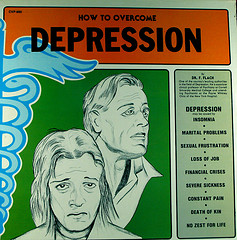Gender and Mental Health
 Mental health problems are one of the world’s leading causes of disease and disability. While previously cases of mental health problems (ranging from depression to chronic mental disorders) were more prevalent in industrialized countries, trends in developing countries are also showing increased rates of mental health problems. While mental disorders affect both genders, there is some notable areas of difference in the number and manifestation,
Mental health problems are one of the world’s leading causes of disease and disability. While previously cases of mental health problems (ranging from depression to chronic mental disorders) were more prevalent in industrialized countries, trends in developing countries are also showing increased rates of mental health problems. While mental disorders affect both genders, there is some notable areas of difference in the number and manifestation,
Mental Health Issues
According to the World Health Organization, mental and neurological conditions account for 12.3% of disability adjusted life years (DALYs) lost globally and 31% of all years lived with disability at all ages and in both sexes, according to 2000 estimates.
Gender Differences
While there are no notable gender differences in the prevalence of mental and behavioural conditions, there are trends dependent on age that show gender differences.
According to the WHO, in childhood, research shows that boys show a greater prevalence for agressive and anti-social behaviour. As teenagers, it is girls who have amuch higher prevalence of depression and Anorexia Nervosa , and a greater tendency for attempted Gender differences in suicide. Boys experience more problems with anger, engage in highrisk behaviours and commit suicide more frequently than girls. In gen er al, adolescent girls are more prone to symptoms that are directed inwardly, while adolescent boys are more prone to act out.
In adulthood, women are more susceptible to depression and anxiety; however substance abuse and antisocial behaviour are more prevalent amongst men. In the case of severe mental disorders such as schizophrenia and bipolar depression, there are no consist ent sex diff erences in prevalence, but men typically have an earlier onset of schizophrenia, while women are more likely to exhibit serious forms of bipolar depression.
In older age groups, rates of Alzheimer’s disease are equal for both men and women; however since women tend to live longer than men, there are in fact more women living with the condition.
Female Specific Issues related to Mental Health
Hormonal changes, sociallydetermined gender norms, roles and responsibilities and gender based violence are three gender specific factors that increase women’s vulnerability to mental and behavioural health problems. Gender based violence, whether in conflict situations or in cases of rape have reported consequences on a woman’s mental health. Dependence on ence on psychotropic medications and substance use and suicide are mental health problems associated with violence in women’s lives.
A population-based study from Nicaragua has found that women who had experienced severe abuse during the last year were ten times more likely to experience emotional distress than women who had never ex pe ri enced abuse. Severity of the abuse appeared to be the major predictor, independently of the time period in which the abuse had taken place.
Male Specific Issues
The socialisation of men to not express their emotions and to be dependent on women for many aspects of domestic life may con trib ute to high levels of distress among them when faced with situations such as bereavement. WHO reports from a study comparing the health of widows and widowers showing that the latter showed greater levels of distress than the former.
References
- WHO Gender and Health
- Wikipedia Mental Health page
- WHO, “Gender and Mental Health” Factsheet (June 2002)
See also
- Mental Category:Health and Gender Stereotypes


